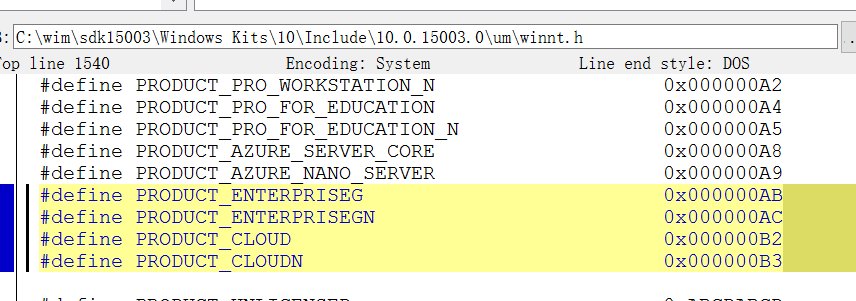Windows 10 Cloud brings Windows RT back from the dead, sort of
Windows 10 Cloud is a new edition of Windows 10 that showed up for the first time in one of the recent Insider Builds released for the operating system.
Microsoft did not provide any information back when Windows 10 Cloud appeared, and has not until today. The rumor mill was in full swing though immediately. Suggestions ranged from a cloud-based operating system, a new subscription-based version of Windows similar to Office365, to something completely different.
Microsoft has yet to make an official statement, but according to Mary Jo Foley, Windows 10 Cloud is what Windows RT was for previous versions of Windows.
She cites unnamed sources who told here that Windows 10 Cloud will only be able to run Unified Windows Platform applications.

source Walking Cat / Twitter
It works similarly to how Windows RT worked back in the Windows 8 days. The operating system was designed to support only Windows Store applications. While Microsoft did convert some desktop programs specifically for Windows RT, it meant that Windows users could not install any desktop program on machines running Windows RT.
The situation has not changed all that much, but it is a little bit better when it comes to Windows 10 Cloud. The main reason for that is that Microsoft created options for developers and companies to turn their legacy Win32 programs to Unified Windows Platform applications. First converted programs are already available as Store apps.
This means almost no extra development time to turn programs into apps in best case. The situation in regards to available apps is a bit better because of this, but it is still far from what is available to users who run regular versions of Windows.
The cloud name is a bit confusing. It is clear that Microsoft did not want to revive RT for Windows 10, as it failed miserably and had a bad reputation because of its limitations.
Cloud, according to Mary Jo's sources refers to Microsoft being a "cloud first" company. Cloud may be a codename however, and the new product edition may be released under a different name when it comes out.
My guess is that this could be Microsoft's attempt at establishing a competitor for Google's Chrome OS / Chromebooks. The devices are mostly cloud powered as well, and in many regards very similar to what Microsoft seems to have in store for Windows 10 Cloud.
Windows 10 Cloud could power low cost devices, much like Windows RT did back in the Windows 8 days. Microsoft's main marketing blunder back then was that it did not make it clearer that Windows RT was a limited Windows edition that was not capable of running legacy programs.
Microsoft could launch Windows 10 Cloud with the Creators Update in April at the earliest. Since the company has not mentioned Windows 10 Cloud at all until now, it is also possible that it will be released at a later point in time.
Now you: What's your take on Windows 10 Cloud?
This article was first seen on ComTek's "TekBits" Technology News

- Log in to post comments